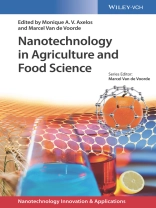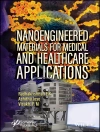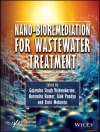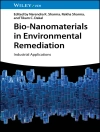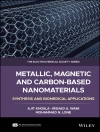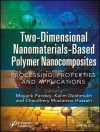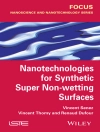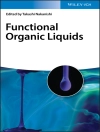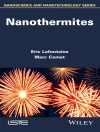A comprehensive overview of the current state of this highly relevant topic. An interdisciplinary team of researchers reports on the opportunities and challenges of nanotechnology in the agriculture and food sector, highlighting the scientific, technical, regulatory, safety, and societal impacts. They also discuss the perspectives for the future, and provide insights into ways of assuring safety so as to obtain confidence for the consumer, as well as an overview of the innovations and applications.
Essential reading for materials and agricultural scientists, food chemists and technologists, as well as toxicologists and ecotoxicologists.
Cuprins
Series Editor Preface VII
About the Series Editor IX
Foreword XXI
Introduction XXV
Part One Basic Elements of Nanofunctional Agriculture and Food Science 1
1 Nanotechnologies for Agriculture and Foods: Past and Future 3
Cecilia Bartolucci
References 13
2 Nanoscience: Relevance for Agriculture and the Food Sector 15
Shahin Roohinejad and Ralf Greiner
2.1 Introduction 15
2.2 Fundamental of Nanoscience 16
2.3 Applications of Nanotechnology in the Agriculture Sector 18
2.4 Applications of Nanotechnology in the Food Sector 23
2.5 Challenges of Using Nanotechnology in Agriculture and Food Sectors 27
2.6 Conclusions 28
Acknowledgment 28
References 28
3 Naturally Occurring Nanostructures in Food 33
Saïd Bouhallab, Christelle Lopez, and Monique A.V. Axelos
3.1 Introduction 33
3.2 Protein-based Nanostructures 34
3.3 Lipid-Based Nanostructures 44
3.4 Concluding Remarks and Future Prospects 46
References 47
4 Artificial Nanostructures in Food 49
Jared K. Raynes, Sally L. Gras, John A. Carver, and Juliet A. Gerrard
4.1 Introduction 49
4.2 Types and Uses of Artificial Organic Nanostructures Found in Food 52
4.3 Conclusion 62
References 63
5 Engineered Inorganic Nanoparticles in Food 69
Marie-Hélène Ropers and Hélène Terrisse
5.1 Introduction 69
5.2 Engineered Inorganic Materials Containing Nanoparticles 69
5.3 Characterization of Engineered Inorganic Nanomaterials 78
5.4 Conclusion and Perspectives 81
References 82
6 Nanostructure Characterization Using Synchrotron Radiation and Neutrons 87
Francois Boué
6.1 Introduction 87
6.2 Principles 89
6.3 The Basic Information from a SAS Profile 93
6.4 A Few Examples: From Soft Matter to Agrofood 100
6.5 Other Scattering Techniques 106
6.6 Recommendation and Practical: A Checklist for Scattering 107
6.7 Summary and Conclusion 110
References 110
Part Two Opportunities, Innovations, and New Applications in Agriculture and Food Systems 113
7 Nanomaterials in Plant Protection 115
Angelo Mazzaglia, Elena Fortunati, Josè Maria Kenny, Luigi Torre, and Giorgio Mariano Balestra
7.1 Introduction 115
7.2 Nanotechnology and Agricultural Sector 117
7.3 Applications of Nanomaterials against Plant Pathogens and Pests 125
7.4 Conclusions 129
References 130
8 Nanoparticle-Based Delivery Systems for Nutraceuticals: Trojan Horse Hydrogel Beads 135
Benjamin Zeeb and David Julian Mc Clements
8.1 Introduction 135
8.2 Overview of Nanoparticles-Based Colloidal Delivery Systems 136
8.3 Designing Particle Characteristics 138
8.4 Trojan Horse Nanoparticle Delivery Systems 140
8.5 Case Study: Alginate Hydrogel Beads as Trojan Horse Nanoparticle Delivery Systems for Curcumin 146
8.6 Conclusions 149
References 149
9 Bottom-Up Approaches in the Design of Soft Foods for the Elderly 153
José Miguel Aguilera and Dong June Park
9.1 Foods and the Elderly 153
9.2 Rational Design of Soft and Nutritious Gel Particles 155
9.3 Technological Alternatives for the Design of TM Foods 160
9.4 Conclusions 162
Acknowledgments 163
References 163
10 Barrier Nanomaterials and Nanocomposites for Food Packaging 167
Jose M. Lagaron, Luis Cabedo, and Maria J. Fabra
10.1 Introduction 167
10.2 Nanocomposites 168
10.3 Nanostructured Layers 172
10.4 Conclusion and Future Prospects 174
References 174
11 Nanotechnologies for Active and Intelligent Food Packaging: Opportunities and Risks 177
Nathalie Gontard, Stéphane Peyron, Jose M. Lagaron, Yolanda Echegoyen, and Carole Guillaume
11.1 Introduction and Definitions 177
11.2 Nanomaterials in Active Packaging for Food Preservation 178
11.3 Nanotechnology for Intelligent Packaging as Food Freshness and Safety Monitoring Solution 181
11.4 Potential Safety Issues and Current Legislation 187
11.5 Conclusions and Perspectives 190
References 191
12 Overview of Inorganic Nanoparticles for Food Science Applications 197
Xavier Le Guével
12.1 Introduction 197
12.2 Food Packaging, Processing, and Storage 197
12.3 Supplements/Additives 199
12.4 Food Analysis 200
12.5 Conclusion and Perspective 202
Acknowledgment 203
References 203
13 Nanotechnology for Synthetic Biology: Crossroads Throughout Spatial Confinement 209
Denis Pompon, Luis F. Garcia-Alles, and Gilles Truan
13.1 Convergence Between Nanotechnologies and Synthetic Biology 209
13.2 Spatially Constrained Functional Coupling in Biosystems 210
13.3 Functional Coupling Through Scaffold-Independent Structures 211
13.4 Spatial Confinement Mediated by Natural and Synthetic Scaffolds 213
13.5 Encapsulated Biosystems Involving Natural or Engineered Nanocompartments 216
13.6 Synthetically Designed Structures for Protein Coupling and Organization 225
13.7 Future Directions 226
References 227
14 Modeling and Simulation of Bacterial Biofilm Treatment with Applications to Food Science 235
Jia Zhao, Tianyu Zhang, and Qi Wang
14.1 Introduction 235
14.2 Review of Biofilm Models 237
14.3 Biofilm Dynamics Near Antimicrobial Surfaces 244
14.4 Antimicrobial Treatment of Biofilms by Targeted Drug Release 246
14.5 Models for Intercellular and Surface Delivery by Nanoparticles 248
14.6 Conclusion 250
Acknowledgments 251
References 251
Part Three Technical Challenges of Nanoscale Detection Systems 257
15 Smart Systems for Food Quality and Safety 259
Mark Bücking, Andreas Hengse, Heinrich Grüger, and Henning Schulte
15.1 Introduction 259
15.2 Overview 260
15.3 Roadmapping of Microsystem Technologies Toward Food Applications 261
15.4 Microsystem Technology Areas 266
References 275
16 Nanoelectronics: Technological Opportunities for the Management of the Food Chain 277
Kris Van De Voorde, Steven Van Campenhout, Veerle De Graef, Bart De Ketelaere, and Steven Vermeir
16.1 Technological Needs and Trends in the Food Industry 277
16.2 Cooperation Model to Stimulate “The Introduction of New Nanoelectronics-Based Technologies in Food Industry”: An Engine for Innovation and Bridging the Gap 279
16.3 Existing Technologies That Can Be Used in a Wide Range of Applications: The Present 282
16.4 New Technology Developments: The Future 285
References 295
Part Four Nanotechnology: Toxicology Aspects and Regulatory Issues 297
17 Quality and Safety of Nanofood 299
Oluwatosin Ademola Ijabadeniyi
17.1 Introduction 299
17.2 Current and Future Application of Nanotechnology in the Food Industry 300
17.3 Food Quality and Food Safety 304
17.4 How Safe is Nanofood? 304
17.5 The Need for Risk Assessment 306
17.6 Regulations for Food Nanotechnology 306
17.7 Conclusion 307
References 307
18 Interaction between Ingested-Engineered Nanomaterials and the Gastrointestinal Tract: In Vitro Toxicology Aspects 311
Laurie Laloux, Madeleine Polet, and Yves-Jacques Schneider
18.1 Introduction 311
18.2 Influence of the Gastrointestinal Tract on the Ingested Nanomaterials Characteristics 314
18.3 In Vitro Models of the Intestinal Barrier 318
18.4 Cytotoxicity Assessment and Application to Silver Nanoparticles 320
18.5 Conclusion 323
References 324
19 Life Cycle of Nanoparticles in the Environment 333
Jean-Yves Bottero, Mark R. Wiesner, Jérôme Labille, Melanie Auffan, Vladimir Vidal, and Catherine Santaella
19.1 Introduction 333
19.2 Transport and Bioaccumulation by Plants 334
19.3 Indirect Agricultural Application of NMs through Biowastes 336
19.4 Transformations of NPs in Soils after Application 339
19.5 Conclusion 342
Acknowledgments 343
References 343
Part Five Governance of Nanotechnology and Societal Dimensions 347
20 The Politics of Governance: Nanotechnology and the Transformations of Science Policy 349
Brice Laurent
20.1 An Issue of Governance 349
20.2 Operationalizing the Governance of Nanotechnology 352
20.3 The Constitutional Project of Governance 356
References 360
21 Potential Economic Impact of Engineered Nanomaterials in Agriculture and the Food Sector 363
Elke Walz, Volker Gräf, and Ralf Greiner
21.1 Introduction 363
21.2 Potential and Possible Applications of Nanomaterials in the Food Sector and Agriculture 364
21.3 Nanotechnology: Market Research and Forecasts 366
21.4 Critical Considerations and Remarks Concerning Market Reports and Forecasts 367
21.5 Obstacles Regarding Commercialization of Nanotechnologies in Food and Agriculture 370
21.6 Conclusion 372
References 372
22 Conclusions 377
Monique A.V. Axelos and Marcel Van de Voorde
Index 381
Despre autor
Monique Axelos is Senior Scientists in the National Institute for Agronomic Research (INRA) Nantes, France. She was Head of the Science and Engineering of Agricultural Products Divisionwhich provides knowledge on raw materials of animal or plant origin and on their transformations for food and non-food uses. Monique Axelos holds a doctoral degree in Physics from the University of Orleans, France. Since 1985, she has conducted research, published, and lectured internationally in area of soft matter physics related to fractal aggregation, biopolymer gelation and phase separation. Current professional foci include the potential of small angle neutron scattering for the in situ characterization of foams and emulsions, the design of nano-objects, and the characterization of air/water interfacial structures.
Marcel Van de Voorde has 40 years’ experience in European Research Organisations including CERN-Geneva, European Commission, with 10 years at the Max Planck Institute in Stuttgart, Germany. For many years, he was involved in research and research strategies, policy and management, especially in European research institutions. He holds a Professorship at the University of Technology in Delft, the Netherlands, as well as multiple visiting professorships in Europe and worldwide. He holds a doctor honoris causa and various honorary Professorships.
He is senator of the European Academy for Sciences and Arts, in Salzburg and Fellow of the World Academy for Sciences. He is a Fellow of various scientific societies and has been decorated by the Belgian King. He has authored of multiple scientific and technical publications and co-edited multiple books in the field of nanoscience and nanotechnology.
